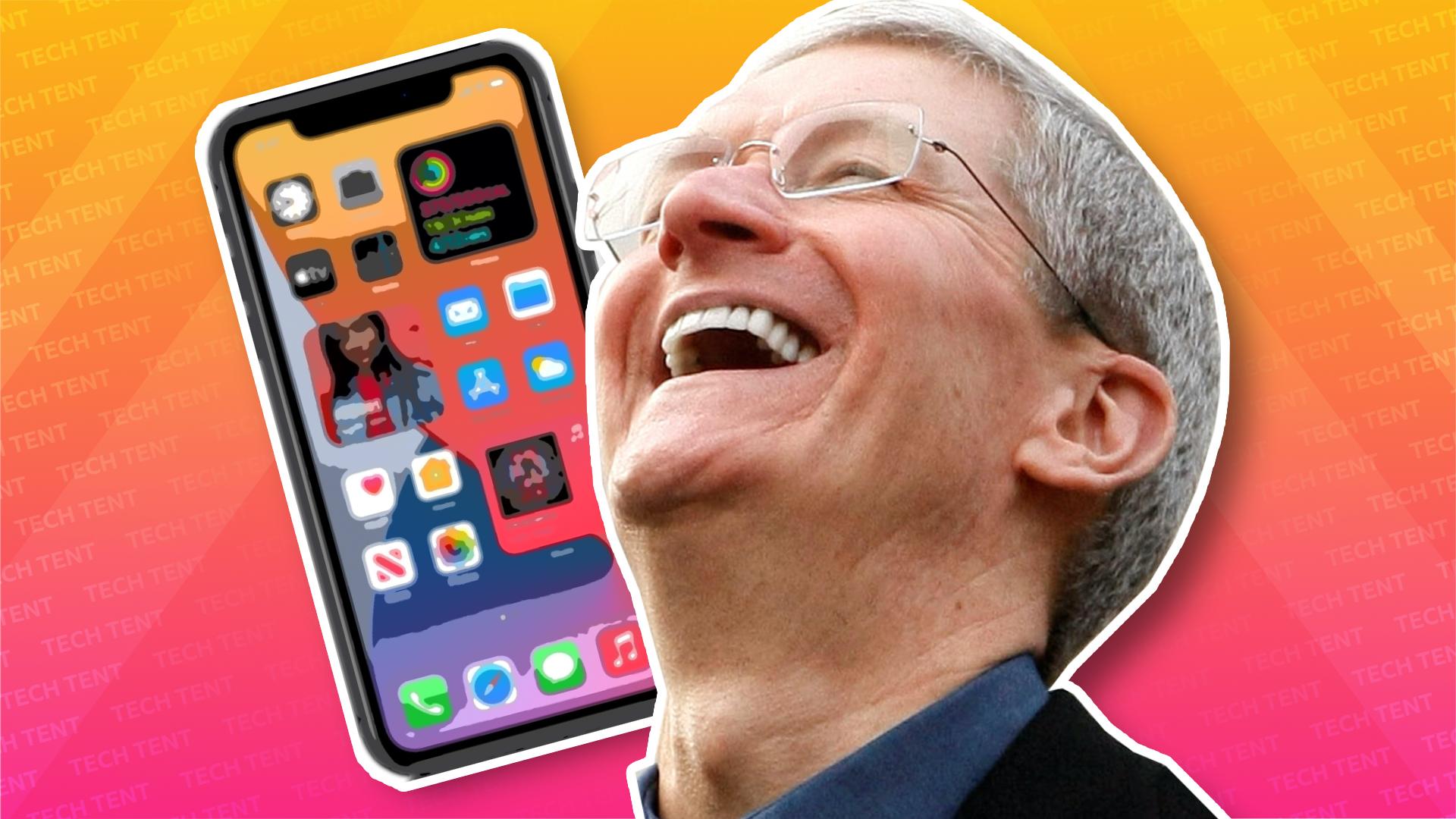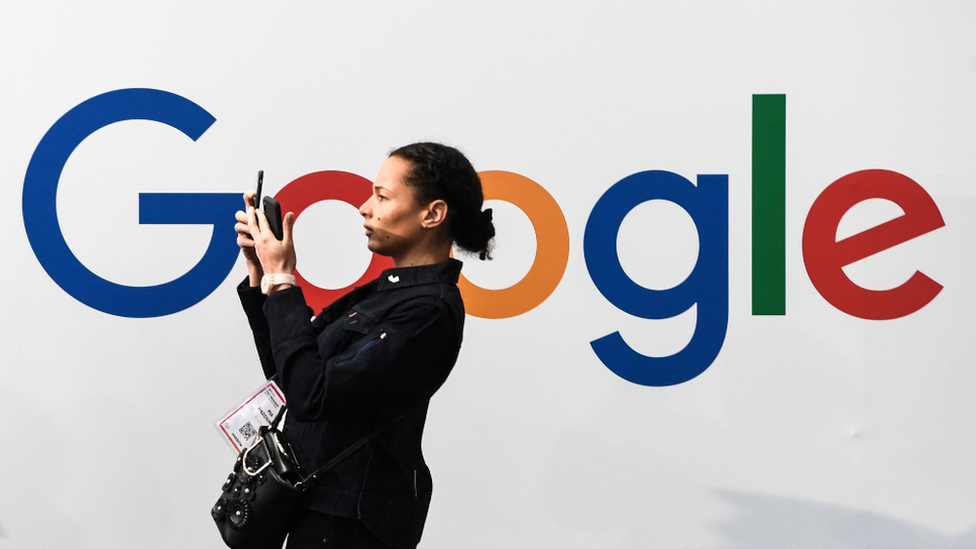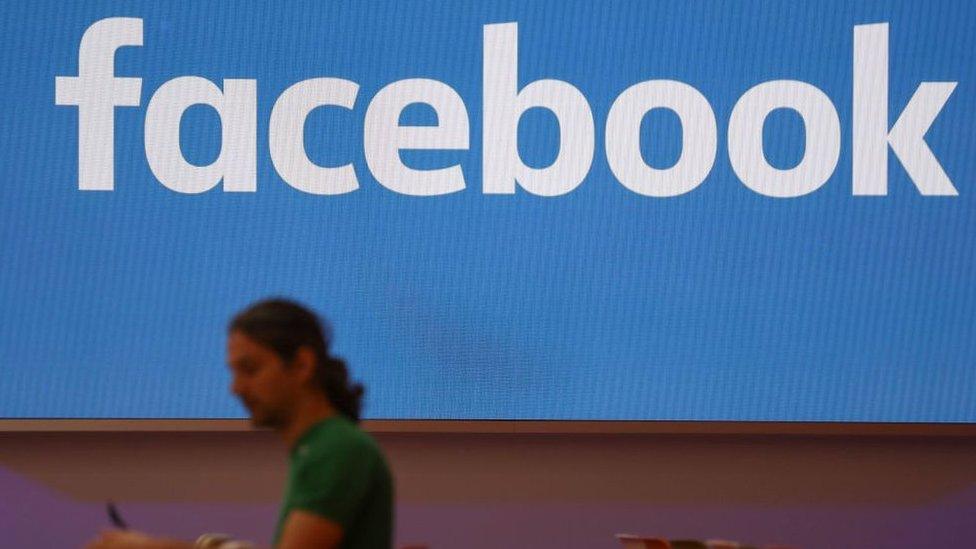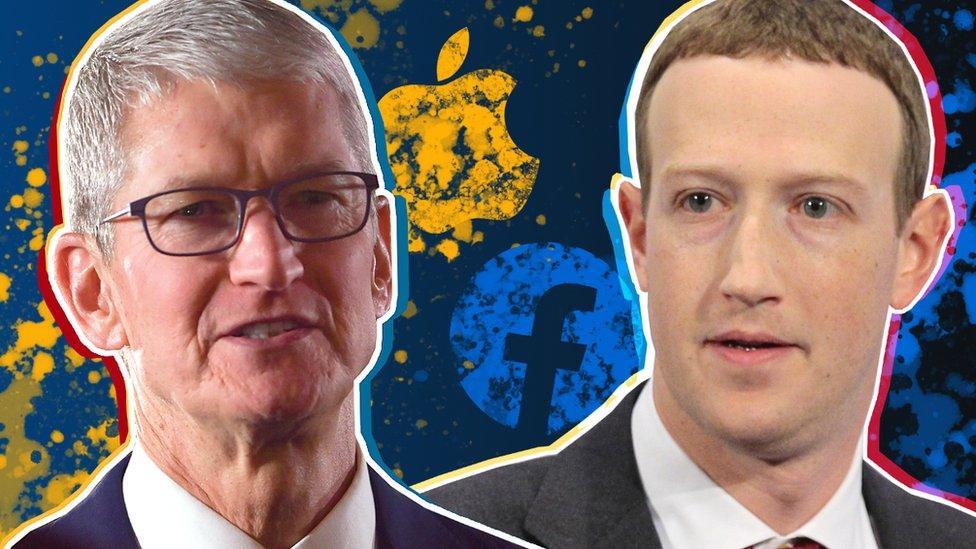Tech Tent: The end of ad tracking?
- Published

Have you ever hovered over a pair of shoes in an online store, but moved on without buying - and then found those shoes advertised everywhere you go on the internet?
Now, the technology that makes that possible is being shackled by two tech giants, meaning a major upheaval in online advertising.
On this week's Tech Tent, we examine the implications of this revolution for an industry which is the lifeblood of many businesses - big and small - but which stands accused of invading our privacy.

Listen to the latest Tech Tent podcast on BBC Sounds

In the next few weeks, Apple will introduce a change to the iOS mobile operating system which powers millions of iPhones and iPads. It will force app developers to give users a choice over whether they want to be tracked when they leave the app and roam across the internet.
Meanwhile Google has said it's banishing the third-party cookies used to keep tabs on an individual's web journeys from both its advertising networks and its Chrome browser.
"It's going to cause a major shock to the system," Lara O'Reilly, from the Insider news site, tells Tech Tent. She explains that third party cookies, or Apple's Identifier for advertisers, aren't just about pestering you with that shoes advert.
"They're also used by advertisers for things like measurement. So working out if you saw an ad on one website, and then you actually went to that shop to buy the jacket."
And this kind of tracking is important - not just for the likes of Facebook, but for any business trying to live off advertising.
"If you're somebody that owns an app, or you own a website, you can fetch far higher prices for your ads if you know more about your users, because you can match it more to that advertiser's needs."
Apple, whose business model does not depend on advertising, is painting its move as just the latest in a series of initiatives to protect the privacy of its customers.
In promoting the tracking "opt-in" policy, it has been using a 2010 quote from its founder Steve Jobs.
He said: "I believe people are smart and some people want to share more data than other people do. Ask them. Ask them every time. Make them tell you to stop asking them if they get tired of your asking them. Let them know precisely what you're going to do with their data."
An oversold promise?
But advertisers seem convinced that if people are asked whether they want to be tracked, the majority will say no.
Some are trying to find ways around the system - there are reports that Chinese tech firms have come up with a tool that will give them an alternative to Apple's Identifier.
But rather than tracking, others are looking at new ways of finding out more about the audiences for their products.
Jane Ostler, head of media insights at Kantar, explains how the consumer research company has recruited panels of more than 25 million consumers around the world who have agreed to be surveyed about their online behaviour.
"Through those panels, we can measure people who've seen certain adverts, and find out what they think about them," she says.
But there also is a growing realisation that the promise of micro-targeted online advertising, where you would know every detail of an individual's habits, may have been oversold.
"There are very few companies who only do targeted media," she says. "Most companies want to grow their audience bases - and to do that they have to establish their brand, perhaps with wider audiences."
So maybe old-fashioned mass-market campaigns could come back into fashion.
But even if targeted advertising can feel creepy, we may not like the alternative.
Without it, says Sam Gilbert, "all of the advertising inventory that's out there would be filled not by products and services that we might be interested in buying, but by things that I guess cater to the lowest common denominator".
Mr Gilbert, a data industry entrepreneur turned University of Cambridge researcher, says that might mean lots more ads for dating apps and gambling sites.
He has written a book called Good Data, arguing that pooling and sharing our data with advertisers can be good for both us and them.
Many argue that the advertising business model, on which tech giants like Facebook depend, is responsible for many of the woes of the web, because it rewards time spent on a site above all else - and regardless of the quality of the experience.
But Mr Gilbert says that online advertising, as well as being economically efficient, can be a force for social justice.
He points out that while Apple's products are mainly used by the wealthy, that's less likely to be the case for Facebook and other businesses dependent on advertising.
"It funds the provision of universal free services to everybody in the world who has got a device and has got an internet connection," he says.
Still, the years in which advertisers could track every detail of our online lives without even asking permission appear to be drawing to a close.
But while that could mean those shoes stop following you across the internet, "free" services still have to earn a profit - so don't expect your online life to be free of annoying adverts.
Related topics
- Published2 April 2021
- Published5 March 2021
- Published25 September 2020
- Published3 March 2021

- Published2 February 2021

- Published29 January 2020

- Published17 December 2020

